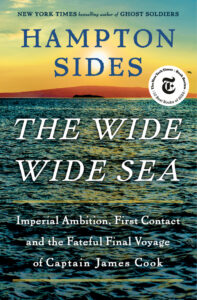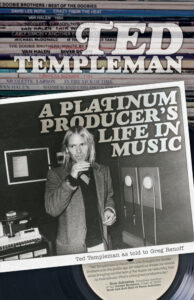
There’s Always This Year – Hanif Abdurraqib
I started the year with this wonderful book. It is a multi-layered examination of the places we call home and how we relate to them as we age, all set against a backdrop of basketball. For the most part, Abdurraqib’s tale follows the career of LeBron James, from high school phenom to his first run with the Cavaliers, to The Decision and move to Miami, and finally his return to Cleveland and winning the title the city sought for so long.
But only a fraction of the book is actually about LeBron. It’s as much about the neighborhood Adburraqib grew up in in Columbus, OH and what it was like to come of age in Ohio in parallel to LeBron. There’s also a nice diversion about former Kansas Jayhawk Kenny Gregory, who was a few years older than the author and lived a few doors down from him, and what it meant to the Columbus projects for a local kid to be a McDonald’s All American, winning both the dunk contest and game MVP award. KG is also used as a counter to LeBron, as the Can’t Miss Kid who, for various reasons, misses. At least compared to all the expectations on him before he went off to college.
There are also bits about music and culture and family and other stuff. Abdurraqib is more poet than social critic/commentator, so the book at times reads as such. There are even sections written in verse. The whole book was surely written over months, if not years. But it reads as though he spun it out over a single night, or maybe two, letting the thoughts flow from brain to pen/keyboard and following whatever diversions they took on the way to getting to his bigger points.

The Wide Wide Sea – Hampton Sides
Captain James Cook was one of the greatest seafarers of the age when men piled into ships and sailed off to parts unknown, hoping to “discover” new lands, peoples, and opportunities. This is an accounting of his final voyage, when his primary mission was to explore the western coast of North America for a potential connection to the theorized Northwest Passage. Along the way he became the first European to land on the Hawaiian Islands.
Cook was unlike most of the other most famous sea explorers whose names are litered across maps and history books. He wasn’t interested in spreading Christianity to “save” the heathens of the unexplored territories of the world. He generally treated the native peoples of the lands he arrived at with respect and intellectual interest, striving to learn about their cultures and societal structures. He took pains to avoid spreading Western diseases in lands where white men had yet to land, not always with success but at least with genuine intent to protect the locals.
But something was off about his final voyage. He seemed cranky and distant, and at times sloppy. There were a series of early setbacks to his journey that were unintentional but set a tone for the remainder of the mission. He was much more likely to punish his sailors with the lash than he ever had been in the past. Worst of all, the change in his mood and behavior led to a massive misunderstanding that ended up costing him his life on a Hawaiian beach in 1779.
This is a remarkable book. It came from a time (Cook left England in mid–1776) when there is a healthy historical record from people on the voyage to accurately recreate their travels. It is truly remarkable that large ships were sent to sea in this time (and had been for over 300 years!). Life on a ship seems like a truly awful experience. Sanitary conditions could be horrific. Boats were filled with rats and cockroaches. Food rotted quickly, supplies of fresh water were limited. The ships constantly leaked. Weather conditions were miserable and the sailors relied on 18th Century clothing to keep themselves dry and warm. Sailors would randomly fall into the sea because of unsettled conditions, often never to be rescued or seen again.
And then there was the matter of it being impossible to communicate with the rest of the world. Ships would set sail and travel for years at a time, family, friends, and benefactors not knowing if a crew was carrying out its mission or on the bottom of the sea until they crawled back into port years later. In severe storms or heavy fog, Cook and his companion ship would fire off their canon at regular intervals to avoid running into each other.
It just doesn’t seem like a lot of fun.
A fascinating story well constructed by Sides.

Ted Templeman: A Platinum Producer’s Life In Music – Ted Templeman as told to Greg Renoff
Kind of an odd choice, but Alex Van Halen referenced this book a lot in his memoir, and then I’ve come across a couple other random references to it since I read AVH’s book, so I thought it would be an interesting read. Which it was, with some big flaws.
First off, I had no idea that Templeman was in the band Harpers Bizarre, which had a few hits in the Sixties, including “59th Street Song (Feelin’ Groovy).” He spends the better part of the first 100 pages of this book detailing his childhood and his Harper’s Bizarre days. Not the reason I picked it up.
Eventually he gets into his production career, beginning with Van Morrison, moving through The Doobie Brothers, and peaking with Van Halen’s glory days.[1] That last bit was obviously the most interesting.
Yet, the book landed a little flat. In musical terms, it felt a little over-produced, as if the rough sections had all been smoothed away. I wasn’t necessarily reading it for gossip, but controversial moments are relayed in an almost passing manner. He keeps hinting that Eddie Van Halen had “issues” but never really spells out that he had become an addict. It’s a weird avoidance of something that is on the public record. Templeman also glossed over many musical terms without explaining them. And, most strangely to me, he insists on calling artists by their shortened names. Eddie Van Halen is always Ed, never Eddie. Alex is alway Al. Michael McDonald is always Mike. He never, ever strays from this. Which drove me nuts. It’s such a Hollywood thing, like “Bob DeNiro is a pal of mine,” or whatever.
There were plenty of good parts. It was very interesting to read his take on how Van Halen fell apart. He had produced Sammy Hagar as well, and famously wanted Sammy to replace David Lee Roth when he signed the band in the late Seventies. In Alex’s book he said he had read this one, and while he respected Templeman, he disagreed with many of his characterizations of VH’s career. It was fun to try to pick out the parts where their views diverged.
Can’t say I highly recommend this book, but it wasn’t a total waste of time, either.
- He also produced Carly Simon, Linda Ronstadt, Nicolette Larson, Aerosmith’s 1987 comeback album, Little Feat, Honneymon Suite, the Wayne’s World soundtrack, and many others. ↩